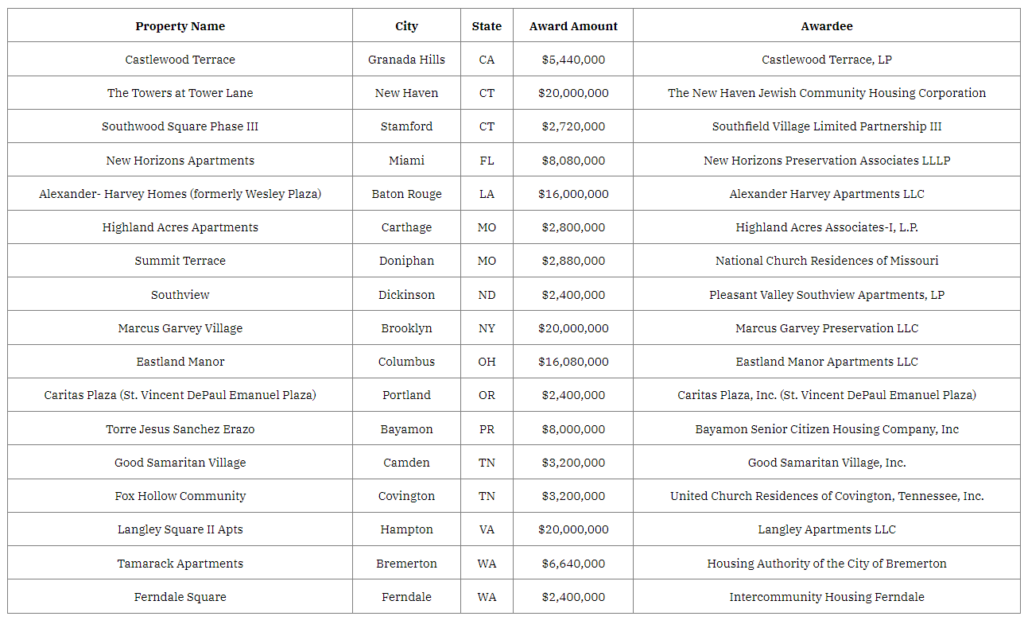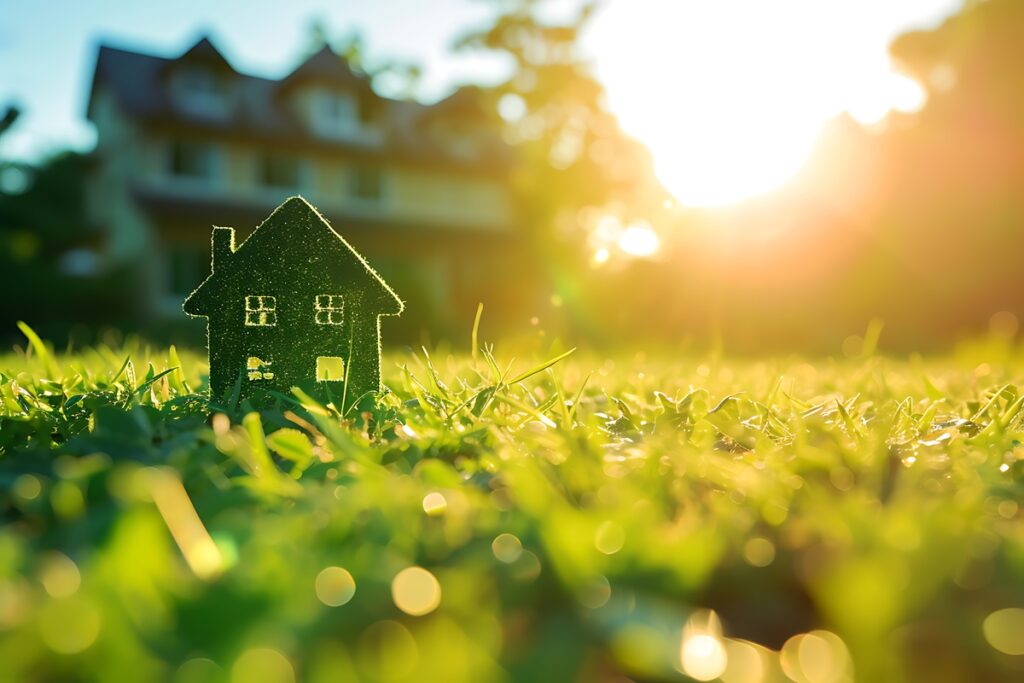The U.S. Department of Housing & Urban Development (HUD) has announced $142 million-plus in new grant and loan awards under its Green and Resilient Retrofit Program (GRRP), bringing the total funding awarded under this program to more than $754 million.
These grants and loans from President Biden’s Inflation Reduction Act will support significant energy efficiency and climate resilience renovations in more than 2,200 homes at properties housing low-income individuals, families, and seniors. This round of awards includes the first GRRP awards being made for properties in Puerto Rico and Louisiana. The funding will improve the quality of life for residents by improving indoor air quality and by making their homes more resilient to climate hazards. These awards will also increase energy and water efficiency, generate renewable energy, and improve the quality of life for residents of affordable housing. They will also reduce climate pollution and promote the use of green building materials at these properties.
“The Biden-Harris Administration has placed a priority on improving housing and boosting energy and climate resilience. Today’s announcement provides funding to carry out both goals,” said HUD Acting Secretary Adrianne Todman. “These investments will reduce costs and improve the living conditions of the families who live in these homes.”
Today’s awardees are as follows:

HUD’s continued commitment to safety
The investments announced today will advance environmental justice in line with the President Biden’s Justice40 Initiative, which sets a goal that 40% of the overall benefits of certain federal investments flow to disadvantaged communities that are marginalized by underinvestment and overburdened by pollution. Retrofitting these homes will reduce their carbon emissions, make them more resilient to extreme weather events, and advance the President’s housing and clean energy agenda, ensuring affordable housing stays affordable for residents and building owners across the nation.
“These awards represent not just our ongoing commitment to improving the health and safety of the homes for low-income families, but the power of partnerships that use federal funding made available through President Biden’s Inflation Reduction Act combined with private resources to combat climate change and promote energy efficiency,” said Assistant Secretary for Housing and Federal Housing Commissioner Julia Gordon.
A history of the GRRP
HUD issued Housing Notice H 2023-05 to implement the GRRP, legislation that provides funding to HUD for three goals:
- To reduce energy and water use in HUD-assisted multifamily properties
- To make HUD-assisted multifamily properties more resilient to extreme weather events and natural disasters
- To reduce greenhouse gas emissions from HUD-assisted multifamily properties, both directly and indirectly and by using material with less embodied carbon.
For a property to be eligible for GRRP funding, the property must be receiving HUD assistance, including Section 8, Section 202, Section 811 and Section 236. A property can qualify for GRRP funding under one of three cohorts available–Elements, Leading Edge and Comprehensive. Property owners can apply for one cohort per property and receive funding by means of a grant or surplus cash loan.
The grants and loans announced today are the third set of awards made under the GRRP’s Comprehensive category, which provides funding to properties with the highest need for climate resilience and utility efficiency upgrades. Of the 17 properties receiving Comprehensive awards today, 14 are properties participating in the HUD Section 8 project-based rental assistance program for low-income individuals and families and three properties are participating in HUD’s Section 202 project-based rental assistance program for low-income seniors. Four properties have more than 200 units, five properties have between 51-200 units, and eight properties have 50 or fewer units.
The GRRP simultaneously invests in energy efficiency, renewable energy generation, climate resilience, and low-embodied-carbon materials in HUD-assisted multifamily housing. All of the investments under the GRRP will be made in affordable housing communities serving low-income families, directly benefiting HUD-assisted housing, in alignment with the Justice40 Initiative.
As of June 25, 2024, GRRP funding has been awarded to 139 properties and more than 16,400 rental homes, to make them greener, healthier, and safer for low-income households, seniors, and persons with disabilities. The projects span the range from targeted upgrades to major net-zero renovation for properties in 39 states, the District of Columbia, and Puerto Rico.
As of June 25, 2024, HUD has awarded more than $754 million in grants and surplus cash loans under the GRRP; $383.5 million in grants and $370.9 million in surplus cash loans.
Of the awardees receiving grants and loans in seven rounds of funding, 114 are properties receiving Multifamily Section 8 project-based rental assistance, 24 properties are receiving Section 202 project-based rental assistance for low-income seniors, and one is receiving Section 811 project-based rental assistance for low-income persons with disabilities.
GRRP funding is being used for insulation, energy efficient windows and doors, heat-resistant roofs, energy efficient heating and cooling, resiliency measures and other improvements.
GRRP is designed to work for properties of all sizes, and with a range of energy efficiency and climate resilience needs. More than 20 properties receiving grant and loan awards have fewer than 50 units, some 77 properties have between 50 and 100 units, while 17 have more than 200 units.
More than 800 properties have also signed up for HUD’s free energy and water benchmarking service, funded with more than $40 million from the President’s Inflation Reduction Act, so that HUD-assisted housing property owners can better understand the energy and water consumption at their properties in relation to other similar properties. This benchmarking information can in turn be used to assess energy efficiency and water conservation upgrades that can be funded under the GRRP.





